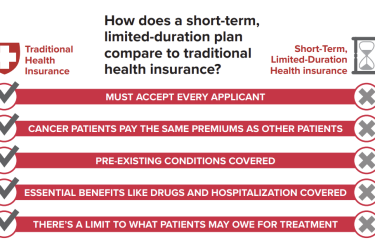Buried deep in a proposal from the federal Centers for Medicare & Medicaid Services (CMS) last week was a proposal to consider new payment and delivery models designed to lower costs and improve quality.
Most of the news about the proposal issued Feb. 21 involved the CMS plan to cut payments to health plans serving Medicare Advantage members by 19 percent. But in the same proposal, CMS said it was seeking to partner with health plans to develop value-based insurance design (VBID) strategies and to improve member engagement.
In its annual call letter, CMS outlines changes for the coming year. In the call letter for 2015, Medicare Advantage Organizations, Prescription Drug Plan Sponsors, and Other Interested Parties (942 Kb PDF), CMS explained briefly its plans for these new strategies: VBID and patient engagement. These two strategies are not widely known, but some of the more innovative health plans have been adopting these two strategies in recent years as they seek to contain costs and improve the quality of care they deliver.
Health plan administrators believe VBID can be effective at eliminating barriers to care that tend to drive up costs and they believe getting patients more engaged in their care can be effective at getting members to be compliant with physicians’ recommendations.
To learn more about VBID, health reporters in Washington, D.C., are invited to attend a luncheon briefing on Friday, Feb. 28, from noon to 1:30 p.m., in HVC-201 in the U.S. Capitol.
A. Mark Fendrick, M.D., director of the Center for Value-Based Insurance Design at the University of Michigan, will be the featured speaker, according to an invitation from Diane Black (R-Tenn.) and John Dingell (D-Mich.). For more information, contact Ellen Malin in Black’s office or Greg Sunstrum in Dingell’s office. Lunch will be served.
Related: Movement away from fee-for-service reimbursements has begun










